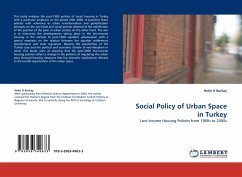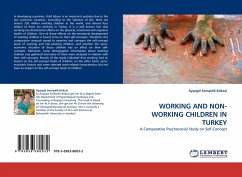This study analyzes the post-1980 policies of social housing in Turkey with a particular emphasis on the period after 2000. It examines these policies with reference to urban transformation and gentrification attempts on the one hand and social policies directed at the redefinition of the position of the poor in urban society on the other hand. The aim is to historicize the developments taking place in the low-income housing in the context of post-1980 capitalist urbanization with a special emphasis on the relation between the squatter settlements (gecekondus) and state regulation. Bearing the peculiarities of the Turkish case and the political and economic climate of neo-liberalism in mind, this books aims at showing that the post-2000 low-income housing policies reflect a change in the patterns of regulating the urban poor through housing measures that has dramatic implications relevant to the overall organization of the urban space.
Bitte wählen Sie Ihr Anliegen aus.
Rechnungen
Retourenschein anfordern
Bestellstatus
Storno








